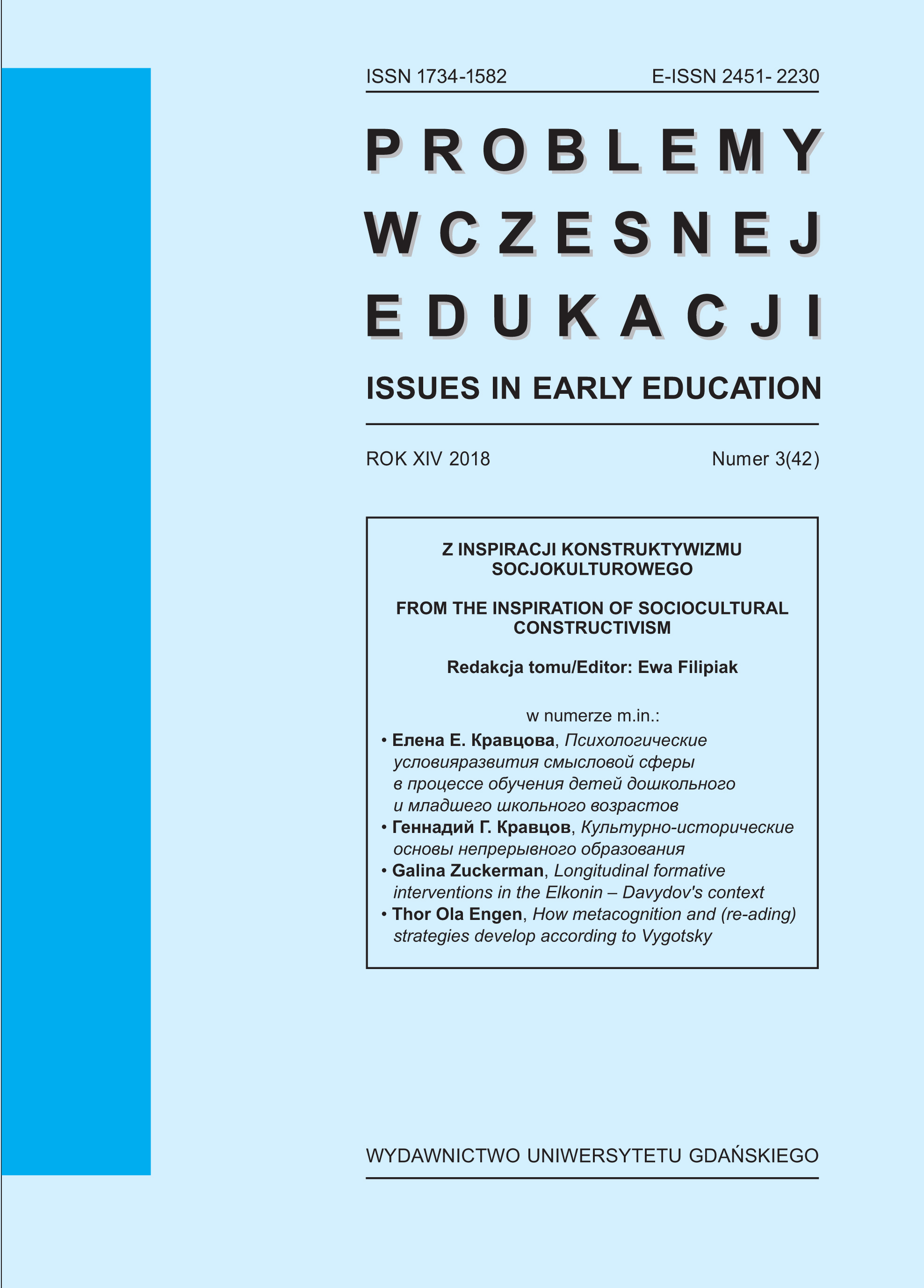Intercultural learning in diverse schools: obstacles, opportunities, and outlooks
DOI:
https://doi.org/10.26881/pwe.2018.42.08Słowa kluczowe:
intercultural learning, intercultural communication, multicultural education, cultural diversityAbstrakt
The emergence in recent years of the concept of intercultural learning has raised questions about how the notion relates to a pedagogy that fosters openness, exploration, and critical thinking. In this article, the author provides a critical examination of a conventional understanding of intercultural learning to clarify its construction and to elucidate its instructional implications. Central to this alternative is a pedagogy that acknowledges students’ former experiences and competencies without making cultural predictions. Instead of reducing the process of understanding to a technical issue, this paper advocates the integration of intercultural learning in schools by connecting the curriculum to students’ lives and identities. This paper ends with a consideration of the future prospects of intercultural learning, suggesting more research on how intercultural learning actually takes place in schools and society.
Downloads
Bibliografia
Baker C., & Wright W.E. (2017), Foundations of Bilingual Education and Bilingualism (6th ed.). Blue Ridge Summit, PA, USA, Multilingual Matters.
Bartolo P., & Smyth G. (2009), Teacher Education for Diversity. In: A. Swennen & M. v. d. Klink (Eds.), Becoming a Teacher Educator. Theory and Practice for Teacher Educators. New York, Springer.
Burbules N.C. (2000), The Limits of Dialogue as a Critical Pedagogy. In: P.P. Trifonas (Ed.), Revolutionary Pedagogies. Cultural Politics, Instituting Education, and the Discourse of Theory. New York, Routledge.
Cochran-Smith M. (2013), Trends and Challenges in Teacher Education: National and International Perspectives. In: A.-L. Østern, K. Smith, T. Ryghaug, T. Krüger, & M.B. Postholm (Eds.), Teacher education reserach between national identity and global trends. Trondheim, Akademika.
Cochran-Smith M., Davis D., & Fries K. (2004), Multicultural Teacher Education. Research, Practice, and Policy. In: J.A. Banks & C.A.M. Banks (Eds.), Handbook of Research on Multicultural Education. San Francisco, Jossey-Bass.
Cummins J. (2018), Teachers as Knowledge Generators: Pushing the Boundaries at Thornwood Public School. In: A.M.V. Danbolt, G.T. Alstad, & G.T. Randen (Eds.), Litterasitet og flerspråklighet – muligheter og utfordringer for barnehage, skole og lærerutdanning. Bergen, Fagbokforlaget.
Darling-Hammond, L., & Lieberman, A. (2012). Teacher Education Around the World. Changing Policies and Practices. New York: Routledge.
Dewey J. (1961), Democracy and education: an introduction to the philosophy of education. New York, The Macmillan Company.
Dewey J. (1963), Experience and education. London, Collier MacMillian Publisher.
Freire P. (2005), Pedagogy of the oppressed. New York, Continuum.
Gay G. (2002), Preparing for Cultural Responsive Teaching. “Journal of Teacher Education”, 52(2).
Hofstede G. (1980), Culture’s consequences. International differences in work-related values. California, Sage.
Hofstede G., Hofstede G.J., & Minkov M. (2010), Cultures and organizations: software of the mind: intercultural cooperation and its importance for survival (3rd ed.). New York, McGraw-Hill.
Horst C. (2006), Interkulturel pædagogik. Vejle, Kroghs forlag.
Kitchens J. (2009), Situated pedagogy and the situationist international: countering a pedagogy of placelessness. “Educational Studies”, 45(3).
May S., & Sleeter C.E. (Eds.) (2010), Critical multiculturalism: Theory and praxis. New York, Routledge.
Nussbaum M.C. (1997), Cultivating Humanity. A Classical Defence of Reform in Liberal Education. Cambridge, Massachusetts, Harvard University Press.
OECD (2014), Education at a Glance. Paris, OECD.
OECD (2015), Helping immigrant students succeed at school – and beyond. Paris, OECD.
Ogrodzka-Mazur E. (2018), Intercultural Education in Poland: Experiences, Problems and Prospects. In: O.B. Cavero & N. Llevot (Eds.), New Pedagogical Challenges in the 21st Century. London, IntechOpen.
Samovar L.A., Porter R.E., McDaniel E.R., & Roy C.S. (2017), Communication Between Cultures 9th Edition. Bosten, Cengage Learning.
Shor I., & Freire P. (1987), A pedagogy for liberation: Dialogues on transforming education. New York, Bergin and Garvey.
Skrefsrud T.-A. (2018), Barriers to intercultural dialogue. “Studies in Interreligous Dialogue”, 28(1).
Taguma M., Shewbridge C., Huttova J., & Hoffman N. (2009), OECD Reviews of Migrant Education. Paris, OECD.

 Uniwersyteckie Czasopisma Naukowe
Uniwersyteckie Czasopisma Naukowe





